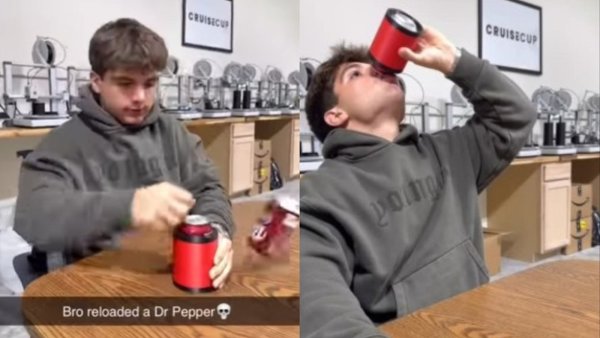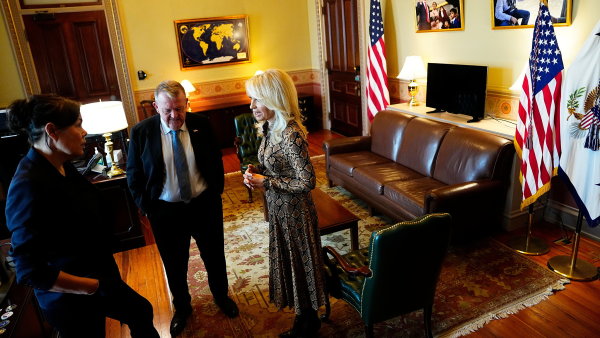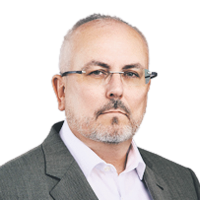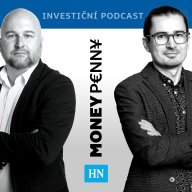Business and ethics
Pre-reading task
1 What are ethical clothes?
2 What is organic cotton?
Now, read the article and see if your answers are correct.
Case study:
James Carston, Fine Shirtmakers
Set up in the 1920s by James Carston, a Manchester tailor, the company has remained in the family and is now run by James' grandson, Paul Carston. Employing fewer than 50 people, the company has a reputation for producing high-quality men's shirts, which it sells by mail order, and has a loyal customer base.
As Paul Carston says: 'Once someone has tried our shirts, they tend to come back for more. Our customers appreciate the attention to detail and the high-quality fabric we use.' And it's the fabric they now use that makes the company exceptional in the world of men's shirt manufacturers.
When Paul Carston took over running the company in 1999, he inherited a business that prided itself on using local, well-paid machinists rather than sweatshop labour, and looked upon its employees as members of an extended family. Paul, a committed environmentalist, felt that the company fitted in well with his values. The shirts were made from 100 per cent cotton, and as Paul says: 'It's a completely natural fibre, so you would think it was environmentally sound.' Then Paul read a magazine article about fair trade and cotton producers. He was devastated to read that the cotton industry is a major source of pollution, and that the synthetic fertilisers used to produce cotton are finding their way into the food chain.
Paul takes up the story. 'I investigated our suppliers, and sure enough found that they were producing cotton on an industrial scale using massive amounts of chemicals. Then I looked into organic cotton suppliers, and found an organisation of Indian farmers who worked together to produce organic cotton on a fair trade basis. Organic cotton is considerably more expensive than conventionally produced cotton, so I did the sums. I discovered that if we were prepared to take a cut in profits, we would need to add only a couple of pounds to the price of each shirt to cover the extra costs. The big risk, of course, was whether our customers would pay extra for organic cotton.'
Paul did some research into the ethical clothing market and discovered that although there were several companies producing casual clothing such as T-shirts in organic cotton, there was a gap in the market for smart men's shirts. He decided to take the plunge and switch entirely to organic cotton.
He wrote to all his customers explaining the reasons for the change, and at the same time the company set up a website so they could sell the shirts on the internet. The response was encouraging. Although they lost some of their regular customers, they gained a whole customer base looking for formal shirts made from organic cotton, and the company is going from strength to strength. Carolyn Hardwick
Exercise 1
Comprehension: Summary. Look at these summaries of the text. Which is the best summary?
a Began trading in 1923 and has always been a family business; has always paid its employees well; now produces men's shirts using organic cotton
b Began trading in 1919 and was sold to Paul Carston in 1999; stopped using sweatshop labour in 1999; now produces T-shirts in organic cotton
c Began trading in 1999 and set up by Paul Carston; all employees are members of his family; produces formal and casual men's clothes in organic cotton
Exercise 2
Comprehension: True or false. Read the article and decide if the following statements are true or false:
1 James Carston was Paul's grandfather.
2 The company has over 50 employees.
3 The shirts are sold in shops.
4 When Paul started running the company, he immediately decided to change to organic cotton.
5 Conventionally produced cotton is cheaper than organic cotton.
6 The company didn't lose any customers when they changed to organic cotton.
Exercise 3
Vocabulary: Grouping. Put these items of clothing into the correct column - a) for items worn on the head; b) for items worn on the chest; and c) for items worn on the legs or feet: hat / trousers / socks / shirt / skirt / jumper
Word search 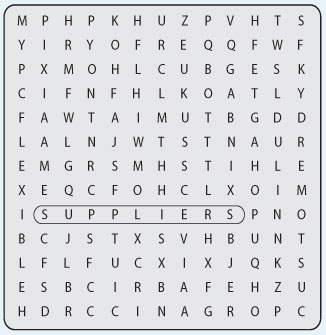
See if you can find these words in the grid. They can be horizontal, vertical, diagonal and backwards.
CHANG_
ORG_NIC
CUSTOM_R
POLLU_ION
FA_RIC
PR_FITS
FLEXI_LE
SUPPLIERS
LAB_UR
SWE_TSHOP
The Ideas Factory 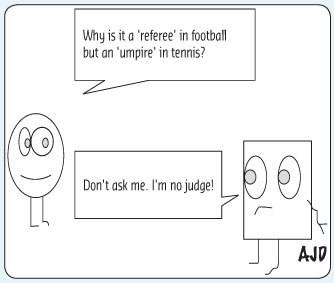
Více informací o jazykových kurzech angličtiny najdete na www.britishcouncil.cz
For more business English articles and exercises go to: www.britishcouncil.org/professionals.htm
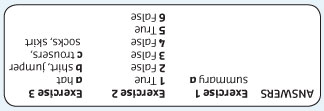
SOUTĚŽTE S NÁMI O KURZ ANGLIČTINY PROFESSIONAL ENGLISH
Každé pondělí najdete na adrese www.britishcouncil.cz
pod bannerem Win a Free Course kvízovou soutěžní
otázku. Soutěž bude vyhodnocena šestkrát, vždy
po 4 týdnech. Každý z 6 výherců získá kurz angličtiny
od British Council v hodnotě 10 500 Kč.
 Přidejte si Hospodářské noviny
mezi své oblíbené tituly
na Google zprávách.
Přidejte si Hospodářské noviny
mezi své oblíbené tituly
na Google zprávách.
Tento článek máteje zdarma. Když si předplatíte HN, budete moci číst všechny naše články nejen na vašem aktuálním připojení. Vaše předplatné brzy skončí. Předplaťte si HN a můžete i nadále číst všechny naše články. Nyní první 2 měsíce jen za 40 Kč.
- Veškerý obsah HN.cz
- Možnost kdykoliv zrušit
- Odemykejte obsah pro přátele
- Ukládejte si články na později
- Všechny články v audioverzi + playlist

